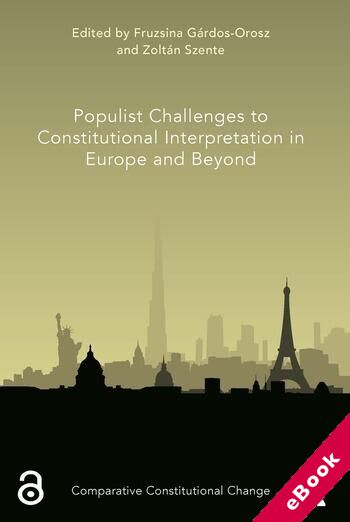We will be closed from 5pm Thursday 17th April for the Easter Bank Holidays, re-opening at 8.30am on Tuesday 22nd April. Any orders placed during this period will be processed when we re-open.

The device(s) you use to access the eBook content must be authorized with an Adobe ID before you download the product otherwise it will fail to register correctly.
For further information see https://www.wildy.com/ebook-formats
Once the order is confirmed an automated e-mail will be sent to you to allow you to download the eBook.
All eBooks are supplied firm sale and cannot be returned. If you believe there is a fault with your eBook then contact us on ebooks@wildy.com and we will help in resolving the issue. This does not affect your statutory rights.
This book explores the relationship between populism or populist regimes and constitutional interpretation used in those regimes.
The volume discusses the question of whether contemporary populist governments and movements have developed, or encouraged new and specific constitutional theories, doctrines and methods of interpretation, or whether their constitutional and other high courts continue to use the old, traditional interpretative tools in constitutional adjudication. Divided into four parts, Part I contains three chapters elaborating the theoretical basis for the discussion. Part II examines the topic from a comparative perspective, representing those European countries where populism is most prevalent, including: Austria, Croatia, the Czech Republic, Greece, Hungary, Italy, Poland, Romania, Spain, and the United Kingdom. Part III extends the focus to the United States, reflecting how American jurisprudence and academia have produced the most important contributions to the theory of constitutional interpretation, and recent political developments in that country might challenge the traditional understanding of judicial review. This section also includes a general overview on Latin America, where there are also some populist governments and strong populist movements. Finally, the editors’ closing study analyzes the outcomes of the comparative research, summarizing the conclusions of the book.
Written by renowned national constitutional scholars, the book will be essential reading for students, academics and researchers working in Constitutional Law and Politics.